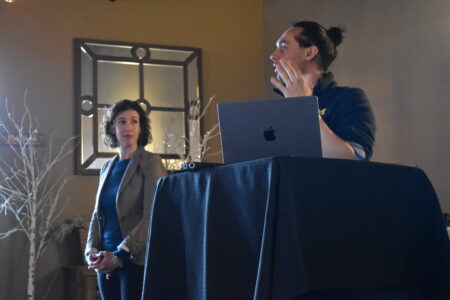Judge denies motion to quash by political robocallers
LANSING — Michigan Attorney General Dana Nessel announced today that Judge Margaret Van Houten rejected a motion from defendants to quash the information and dismiss the case against political robocallers Jack Burkman and Jacob Wohl, rejecting the pair’s constitutional arguments.
The case remains pending in Third Circuit Court.
“We are pleased with the court’s ruling, and look forward to the case continuing on to the next stage of the proceedings,” Nessel said.
Burkman, 54, and Wohl, 22, are accused of orchestrating a robocall to intimidate voters in Detroit and other cities with significant minority populations. The defendants are each charged with:
One count of election law – intimidating voters, a five-year felony;
One count of conspiracy to commit an election law violation, a five-year felony;
One count of using a computer to commit the crime of election law – intimidating voters, a seven-year felony; and
Using a computer to commit the crime of conspiracy, a seven-year felony.
In their motion and oral arguments, Burkman and Wohl claimed the conduct did not violate Michigan’s voter intimidation law and that the robocalls were nonetheless protected by the First Amendment. Judge Van Houten rejected these arguments today.
Van Houten ruled that the district court did not abuse its authority in binding over the case to Circuit Court because the robocall had the potential to deter people from voting by mail. She also rejected the free speech argument made by defendants.
“I think that this does not qualify as … a violation of the First Amendment in this context,” Van Houten said. “Every statement has to be viewed in and of itself. It’s not expressing an opinion, it is stating information that is misleading at very least and possibly false …”
Attorney General Nessel’s Office filed criminal charges on Oct. 1, 2020 alleging Burkman and Wohl attempted to deter voters from participating in the Nov. 3 general election by disseminating a robocall making a number of falsehoods and targeting specific areas, including Detroit and other major U.S. cities with significant minority populations. These robocalls were made in late August and went out to nearly 12,000 residents in the Detroit area.




